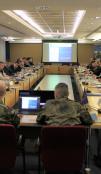Military Planning and Conduct Capability (MPCC)
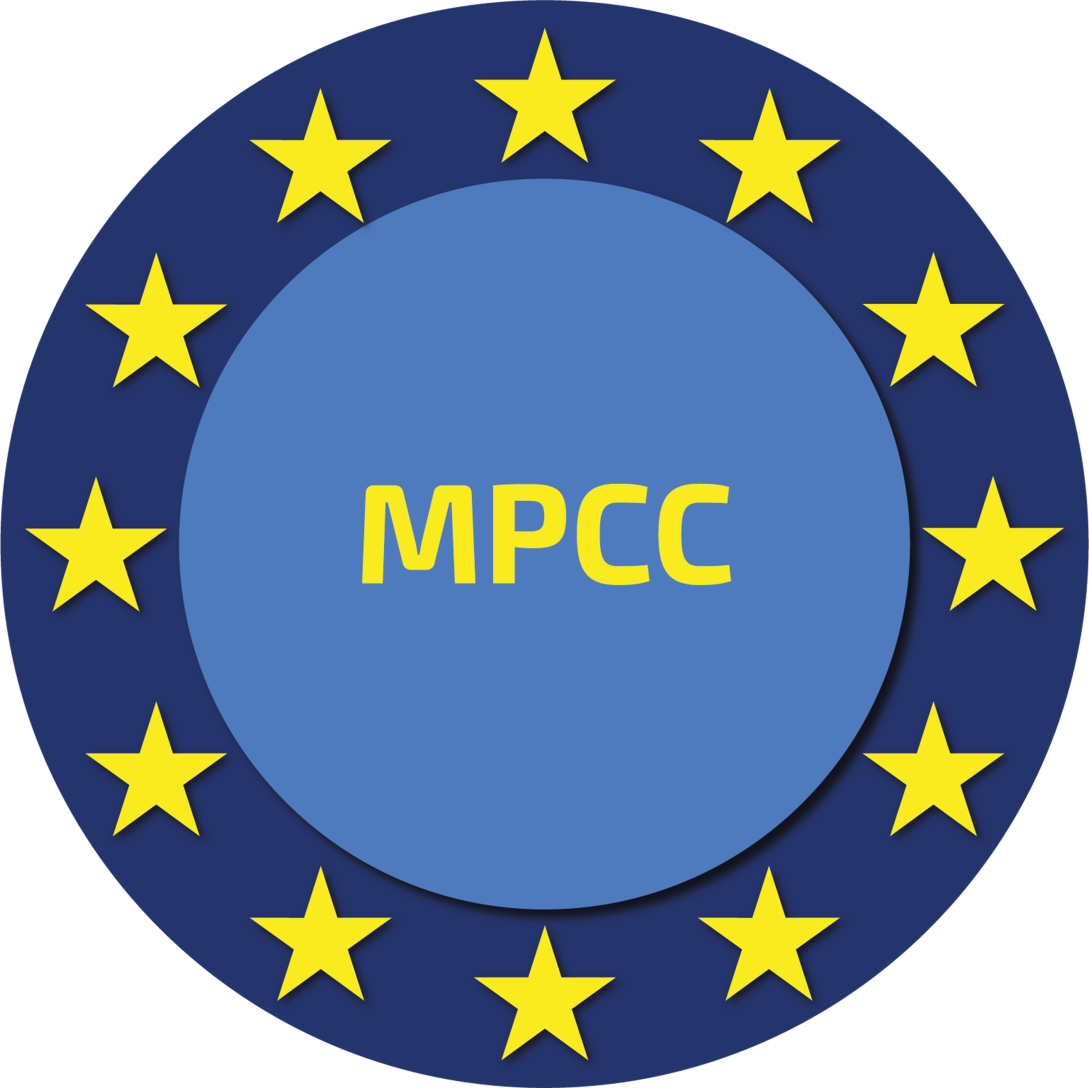
MPCC part of the EU’s Integrated Approach
The Global Strategy for the EU's Foreign and Security Policy identifies the Integrated Approach as the framework for a more coherent and holistic engagement by the EU to Crisis Management. It promotes human security and thereby increases the security of the EU and its citizens.
It is clear to EU Member States that current security challenges cannot be improved by military means alone. However, the EU has at its disposal a range of policies and instruments to respond to these security challenges including those in its immediate neighbourhood and beyond. These instruments are multi-dimensional and include Diplomacy, Economic actions, Humanitarian Assistance, Development cooperation and Common Security and Defence Policy (CSDP) activities, which include the deployment of security and defence actors. It is multi-level, applied at the local, national, regional and global levels, as needed. The Integrated Approach is also multi-phase and is applied throughout all phases of a conflict, including prevention, crisis response, stabilisation and longer-term peacebuilding, in order to contribute to sustainable peace.
This multilateral approach brings together Member States, relevant EU institutions and other international and regional partners as well as civil society organisations. The more coherent all actors work together - the more effective and efficient is the EU’s engagement.
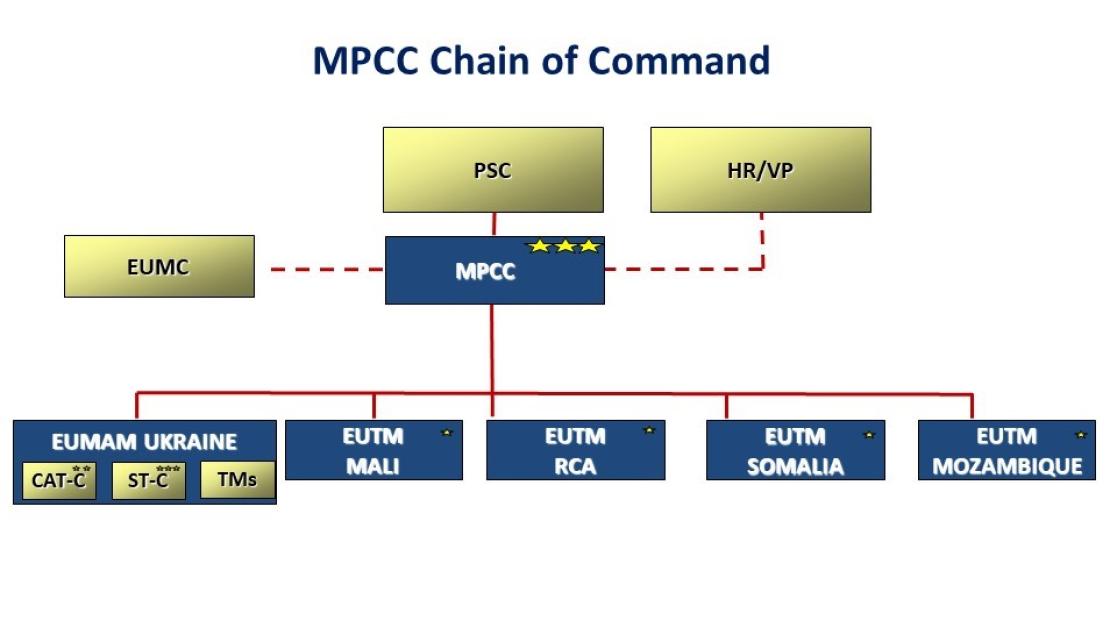
Meeting the EU Strategic Compass Requirements
In the EU Strategic Compass (2022) the MPCC is described as the preferred military strategic level C2 structure to function also as the Operational Headquarter (OHQ) for the EU Battle Groups (EU BGs) and the EU Rapid Deployable Capability (RDC), by 2025. This should be preceded by preparations, exercises and training in 2023 and 2024, including live exercises involving the MPCC as the Operational HQ. The MPCC, once it reaches its Full Operational Capability (FOC), is the preferred military strategic level C2 structure for the RDC. This will not affect the ability to continue using the pre-identified national OHQs.

The MPCC development procedures, including personnel, CIS and infrastructure, in order to reach FOC by 2025, have already started. These procedures include exercises and training in 2023 and 2024, including live exercises involving the MPCC as the Operational HQ.
By 2025, the MPCC will be able to plan and conduct all non-executive military missions and two small scale or one medium-scale executive operation(s), as well as live exercises. As a next step and upon achievement of this objective, we will also work to further expand our ability to plan and conduct additional non-executive missions and executive operations.
Joint Support Coordination Cell (JSCC)
MPCC works in parallel and in a coordinated way with the Civilian Planning and Conduct Capability (CPCC) most notably through a Joint Support Coordination Cell (JSCC). Its function is to bring civilian and military expertise together in key mission support areas, and to strengthen and enable effective civilian-military coordination and cooperation in the operational planning and conduct of CSDP missions. Through the JSCC, the Director MPCC and the Director CPCC have a tool to enhance and promote civil-military synergies. JSCC has produced so far tangible results in all Mission Areas for the benefit of EU’s military and civilian missions.
Military Exercise 2022 (MILEX 22)
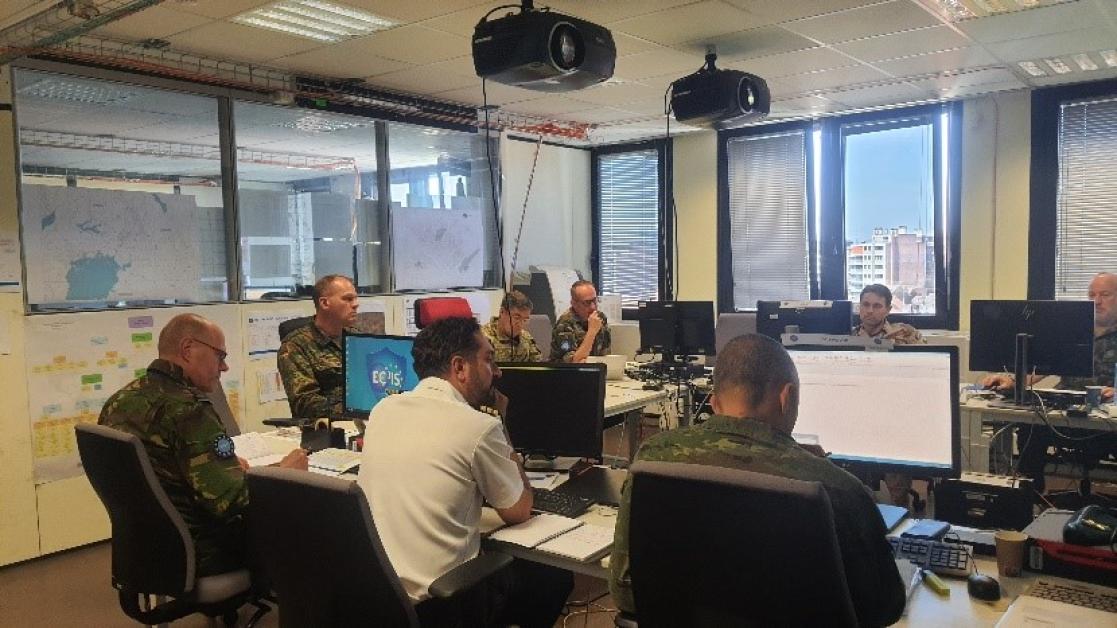
MPCC assumed the responsibility of an Operational Headquarters during the Military Exercise 2022 (MILEX 22) at the military strategic level able to conduct one executive EU CSDP operation up to EU Battle Group size. The exercise also included a Force HQ (FHQ) provided by Spain. This exercise was an important milestone in the development of the MPCC as it moves towards achieving its ambition and as it was outlined in the EU Global Strategy 2016 and the Strategic Compass (2022). This exercise was the culmination of months of detailed planning and preparation to produce exercise specifications approved by the Council and instructions approved by the EUMC. The exercise scenario was based on an Evacuation Operation of EU citizens by air assets. It was the first iteration of MILEX that utilised the CIS deployable package (DP) and a designated Operational Planning tool (EUCCIS) for the production of a Strategic Planning Directive and an Operational Plan.
The missions’ mandates
EUTM Mali
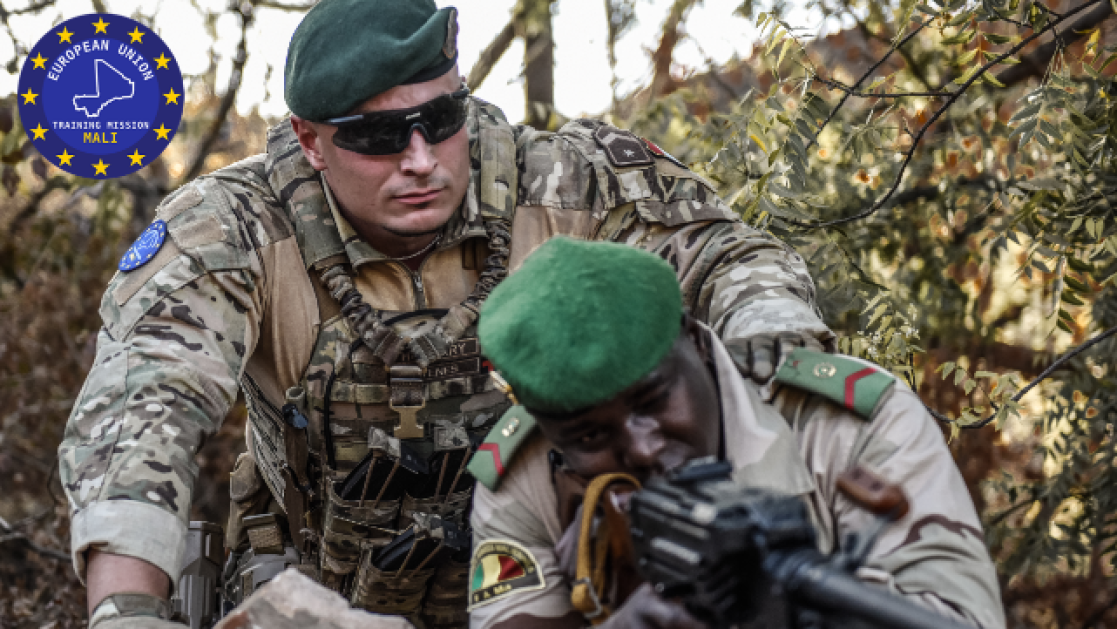
In 2022, the EU Council, following the Holistic Strategic Review for the mission, decided the mandate of EUTM Mali, which runs until 18 May 2024, to be adapted to the political and security situation in Mali. According to the EU Council decision EUTM Mali provides the Malian Armed Forces (MAF) with military advice and education (unless the PSC decides to suspend those activities). In addition, if the PSC decides that the conditions are met, EUTM Mali shall provide the MAF with training, including pre-deployment training, and with mentoring, through non-executive accompaniment up to the tactical level, in order for EUTM Mali to be able to follow up on the activities of the MAF and to monitor its performance and behaviour, including with regard to respect for human rights and international humanitarian law.
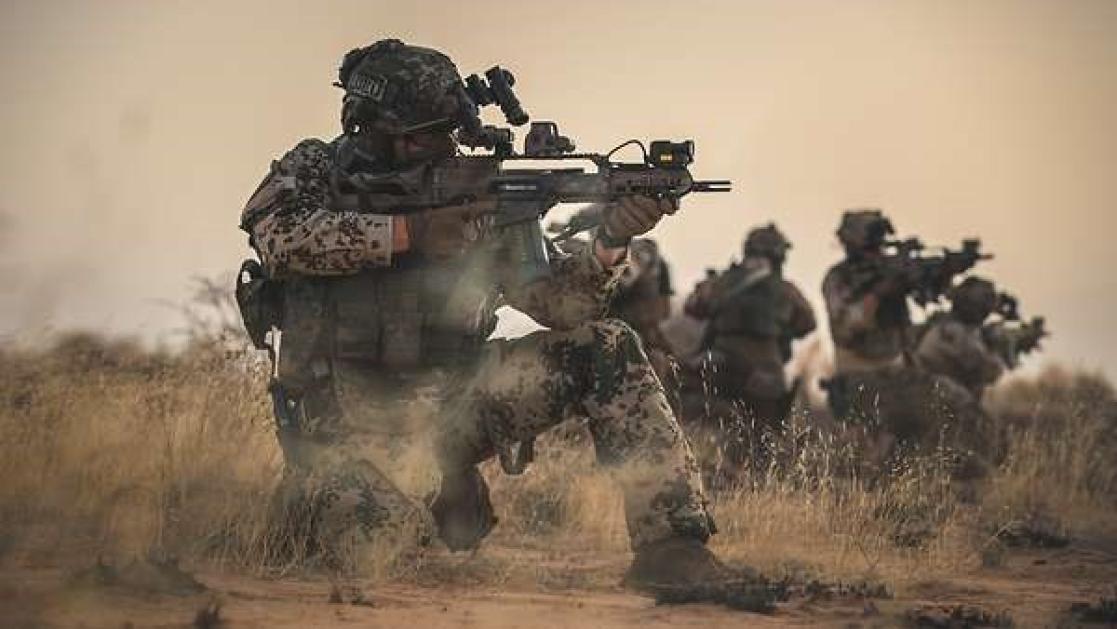
MATF Gazelle
On the 20 May 2021 the Political and Security Committee (PSC) approved the offer of Germany to integrate the Military Assistance Task Force (MATF) GAZELLE in EUTM Mali, operating in Niger and providing military assistance to the NE Special Operation Forces (SOF) for an estimated period of two years. On 15 Dec 2022, MATF GAZELLE reached the end of its mandate after having clearly achieved its objectives, which was feasible due to full Host Nation ownership and commitment, clear, realistic and well measurable objectives and its temporary character.
EUTM Central Africa Republic

Following the Holistic Strategic Review for EUTM CAR, the EU Council decided the mandate of EUTM CAR to be extended until 20 September 2023. On 11 May 2022 the PSC agreed that the mandate of EUTM RCA should be adjusted to the situation in the Central African Republic. Working towards the goal of modernised, effective and democratically accountable Central African Armed Forces (FACA), EUTM CAR provides strategic advice to the Central African Republic’s Ministry of Defence and to the FACA General Staff education to the FACA in non-operational domains. If the Political and Security Committee decides that conditions are met, EUTM CAR will provide training to the FACA.
EUTM Somalia
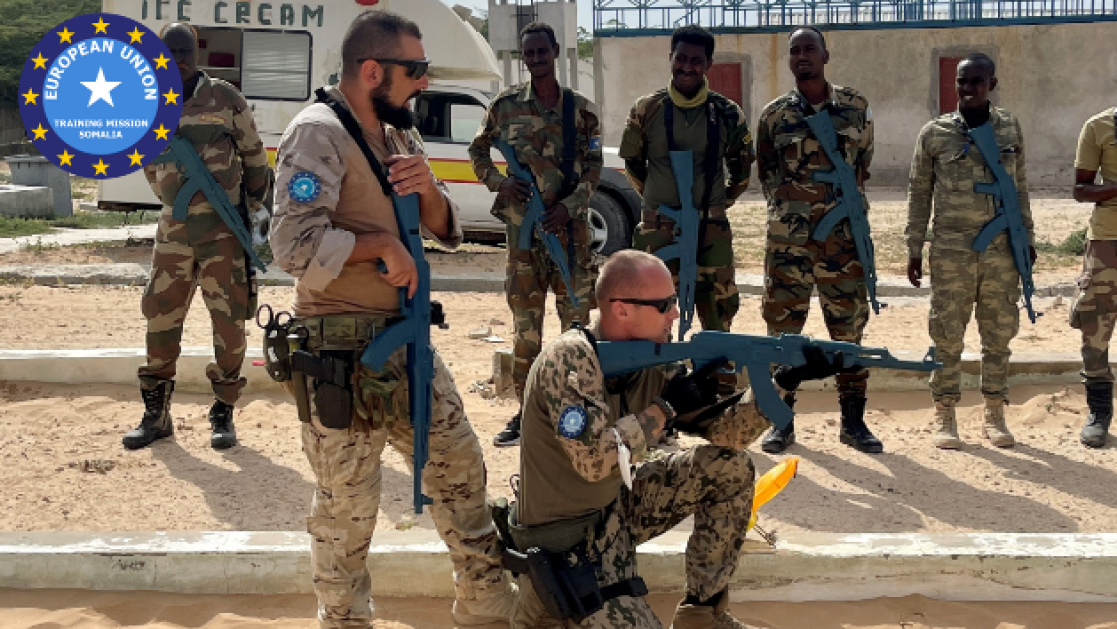
On the 12 December 2022 and in the context of the Holistic Strategic Review of CSDP engagement in Somalia and the Horn of Africa, the EU Council decided the mandate of EUTM Somalia to be further extended until 31 December 2024.
EUTM Somalia shall, in particular, support the development of the Somali-owned Training System with a view to gradually handing over, in principle, responsibility for training to SNAF by the end of 2024. EUTM Somalia shall mentor Somali-owned and Somali-provided training and maintain the capacity to track and assess the units it has trained. EUTM Somalia shall also provide support, as necessary and within its means and capabilities, to other European Union actors in the implementation of their respective mandates in the security and defence area in Somalia, in particular to the European Union Capacity Building (EUCAP) Mission in Somalia, with regard to the interoperability between the Somali National Armed Forces (SNAF) and the Somali Police forces.
EUTM Mozambique

On 15 October 2021, the European Union has launched a military training mission in Mozambique (EUTM Mozambique) following a request from the Mozambican government to support their armed forces through a training and capacity building mission. The mission provides training and support to the Mozambican armed forces to protect the civilian population and restore security in the Cabo Delgado province. EUTM MOZ has a non-executive mandate and its full operational capability was declared the 9 Sep 2022. EUTM Mozambique through its 2 years’ mandate provides training to eleven companies: five companies of Mozambique navy marines in Katembe, and six companies of Army special forces, in Chimoio. It has been built on the training already undertaken by the Portuguese army and closely coordinated with other international partners.
EUMAM Ukraine (EUMAM UA)

Russia’s unprovoked and unjustified war of aggression against Ukraine triggered a strong response by the EU and likeminded countries. The EU is providing substantial political, military, financial and humanitarian support to Ukraine, as well as imposing a high cost on Russia through unprecedented sanctions. This support includes significant support to the Ukrainian Armed Forces (UAF), such as donation of military equipment as well training to the UAF. The EU Military Assistance Mission in support of Ukraine (EUMAM Ukraine) was launched on 15 Nov 2022 to provide a structured EU response to the UAF urgent as well as longer-term training needs, and to offer a predictable and sustainable platform to enhance the military capacity and resilience of the UAF.

